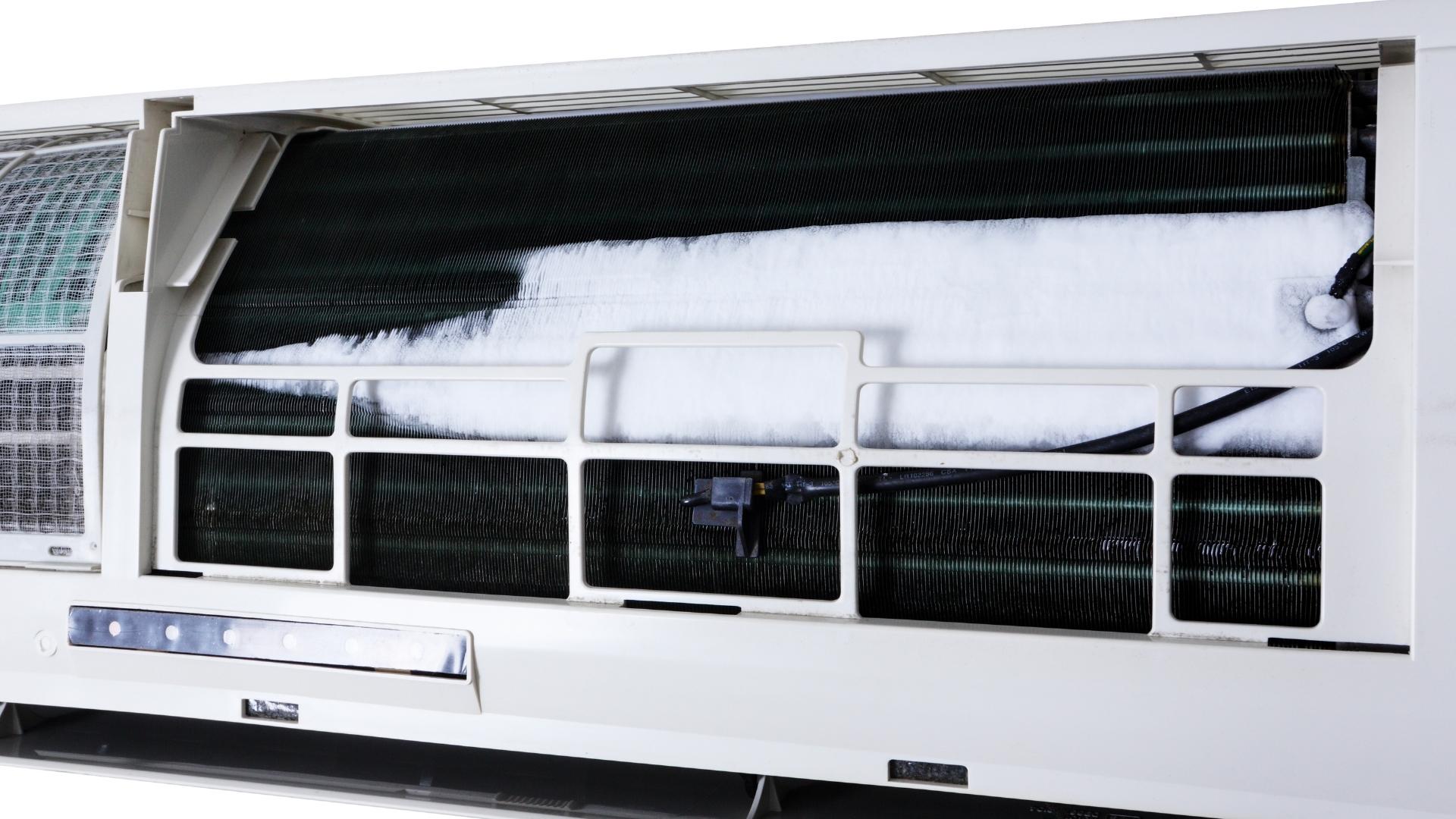When summer’s scorching heat sets in, the comfort of a well-functioning air conditioning unit becomes indispensable. However, what happens when your AC decides to freeze up on you? This guide will provide you with everything you need to know about the thawing process and recovery time of your air conditioner. Whether you’re a seasoned homeowner or a first-time AC user, this article will equip you with the knowledge to tackle this common summer annoyance.

Image: getblogo.com
Understanding AC Freeze-Ups: A Diagnostic Conundrum
Before we delve into the thawing process, let’s first understand the underlying causes behind an air conditioner freeze-up. The evaporator coil, which is responsible for extracting heat from the air, can accumulate ice under specific circumstances. This occurs when the coil becomes too cold due to restricted airflow, blocked condensation drainage, or refrigerant leaks. Recognizing these potential causes will help you prevent future freeze-ups and prolong the lifespan of your valuable appliance.
The Thawing Process: A Step-by-Step Guide to Revival
-
Safety First: Before you commence the thawing process, ensure your safety by turning off the AC unit at the thermostat and power source. This precautionary measure minimizes the risk of electrical accidents.
-
Thorough Inspection: Take time to examine your air conditioner unit for any obvious signs of blockage or damage. Check the air filter for clogging and the condensation drain line for any potential kinks or obstructions. If you discover any evident issues, resolve them before proceeding further.
-
Time to Thaw: Allow ample time for the ice on the evaporator coil to melt naturally. This passive approach prevents potential damage to the delicate coil and ensures a thorough thaw. Depending on the severity of the freeze-up, this process can take several hours or even overnight. Exercising patience during this phase is crucial.
-
Manual Intervention: If the ice buildup is substantial and time is of the essence, you may consider using a hairdryer to accelerate the thawing process. However, maintain a safe distance and avoid direct contact with the evaporator coil to prevent damage. Focus the warm air on the iced surfaces and exercise caution while employing this technique.
-
Restart and Rejuvenation: Once the ice has melted completely and the evaporator coil is clear, restart the air conditioning unit. Allow a few minutes for the system to stabilize and resume normal operation. You should notice a significant improvement in cooling performance, signaling the successful completion of the thawing process.
Recovery Time Estimation: A Variable Timeline
Estimating the recovery time for your AC unit after a freeze-up is not an exact science. Several factors influence the duration, including the severity of the freeze, the ambient temperature, and the efficiency of the thawing method. Here’s a general guide to help you gauge the timeline:
-
Mild Freeze-Ups: If the ice buildup is minimal, the thawing process can be relatively quick, potentially taking a few hours or less. Patience is key during this time, and allowing the ice to melt naturally is recommended.
-
Moderate Freeze-Ups: When the ice accumulation is more substantial, the thawing time can extend overnight. Using a hairdryer to assist the process can expedite the thaw, but proceed with caution.
-
Severe Freeze-Ups: In cases of extreme ice buildup, the thawing process may take longer, possibly even requiring professional assistance. Attempting to force a thaw without proper expertise could lead to further complications.

Image: www.thervgeeks.com
Prevention is the Ultimate Solution: A Proactive Approach
Regular maintenance is the cornerstone of preventing AC freeze-ups. Here are some proactive measures you can take:
-
Filter Fidelity: Regularly cleaning or replacing your air filter ensures optimal airflow, preventing excessive evaporator coil icing.
-
Drain Line Decongestion: Periodically inspect the condensation drain line for clogs or obstructions and promptly clear any blockages.
-
refrigerant Regularity: Ensure proper refrigerant levels in accordance with the manufacturer’s specifications to maintain efficient system operation.
-
Professional Expertise: Schedule regular professional maintenance check-ups to keep your AC unit in peak condition, minimizing the likelihood of freeze-ups.
If Your Ac Freezes Up How Long To Thaw
Conclusion: Unlocking Comfort and Longevity
An air conditioner freeze-up can be a frustrating experience, but understanding the thawing process and recovery time can help you restore comfort and prevent long-term damage. By following the steps outlined in this guide, you can safely thaw your AC unit and get it back to providing the cooling relief you need. Remember, regular maintenance and preventive measures are the key to minimizing freeze-ups and ensuring the longevity of your air conditioning system. Stay cool and refreshed throughout the summer with a well-maintained AC unit!






